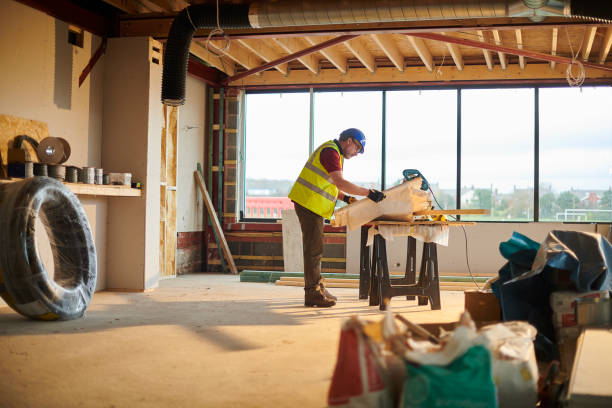Comprehensive Guide to Selecting Top Commercial General Contractors
Choosing the right commercial general contractor can make or break your construction project. It’s like picking the right ingredients for your favorite dish—get it right, and you’re in for a treat. Get it wrong, and well, you get the picture.
1. Evaluate the Contractor’s Experience and Reputation
When it comes to commercial general contractors, experience isn’t just about the number of years they’ve been in the business—it’s about the relevance of their experience to your project. Are you looking to build a skyscraper in the heart of the city? Then you’d want a contractor who’s done that before, not someone who specializes in suburban shopping malls.
Reputation is another key factor. Think of it as the Yelp reviews of the contracting world. Word-of-mouth referrals from satisfied customers speak volumes about a contractor’s performance. But don’t stop there. Check out industry watchdogs like the Better Business Bureau or the local Chamber of Commerce. They can provide valuable insight into a contractor’s track record.
Consider these points when evaluating a contractor’s experience and reputation:
- Industry experience: How long has the contractor been in business? Have they undertaken projects similar to yours?
- Reputation: What do past clients have to say about their work? Are there any red flags on consumer protection sites?
- Accreditations and awards: Has the contractor received any industry recognition? This could indicate a commitment to excellence.
- Team qualifications: What qualifications do the team members hold? Are they equipped to handle your project?
Remember, the goal isn’t to find the cheapest contractor—it’s to find the best one for your project. And often, that’s the contractor with the right combination of experience and a solid reputation. And that, my friend, is how you find a commercial general contractor that’s worth their salt. Or should I say, worth their concrete?
2. Assess the Contractor’s Financial Stability
Once you’ve found a commercial general contractor with the right kind of experience and a sterling reputation, it’s time to take a peek at their financial stability. Picture this: You’re halfway through your project, and your contractor declares bankruptcy. What happens to your project?
Financial stability isn’t just about being able to pay the bills—it’s about weathering unexpected financial storms. A financially stable contractor can continue to pay their workers and suppliers, even if a project encounters unexpected costs.
You might be thinking, “But how do I gauge a contractor’s financial stability?” It’s not as daunting as it sounds. Start by asking the contractor for financial references, such as their bank or other lenders. They should be able to provide this information without hesitation. If not, it could be a sign to look elsewhere.
Consider the following factors when assessing a contractor’s financial stability:
- Financial references: Does the contractor provide financial references readily and without hesitation?
- Payment practices: Does the contractor pay their suppliers and subcontractors on time?
- Financial resilience: Does the contractor have a backup plan in case of unexpected costs?
- Insurance and bonds: Does the contractor carry sufficient insurance and bonds to protect you in case of a mishap?
Not the most exciting part of selecting a commercial general contractor, I know. But remember, a financially sound contractor means a project that’s more likely to be completed on time and within budget. And that’s worth a little financial detective work!
3. Review the Contractor’s Past Projects and Client Feedback
Alright, you’ve checked the financial health of your potential commercial general contractors, and now you’re ready for the next step—diving into their past work and client feedback. This is your chance to play detective and really get a feel for how they operate.
Let’s begin with their past projects. If a picture is worth a thousand words, then a completed project is worth a million. It’s a tangible result of the contractor’s work and a great way to assess their abilities. Look for projects similar to yours in size, scope, and industry. This will give you a clear idea of their capabilities and if they’re the right fit for your project.
Next up is client feedback. This is where you get to hear straight from the horse’s mouth. What do previous clients think of the contractor’s work? Was the project completed on time and within budget? Were there any issues, and if so, how were they resolved?
Here are some things you can do to review past projects and client feedback:
- Ask for a project portfolio: This should include photos, project details, and client testimonials.
- Check online reviews: Look for reviews on platforms like Google, Yelp, or industry-specific sites.
- Request client references: Contact previous clients directly and ask about their experience.
- Visit completed projects: If possible, visit a completed project to see the contractor’s work firsthand.
Remember, the goal is to get a holistic view of the contractor’s work. By examining their past projects and listening to client feedback, you’ll be well on your way to choosing the best commercial general contractor for your project. Now, doesn’t that sound like a plan?

